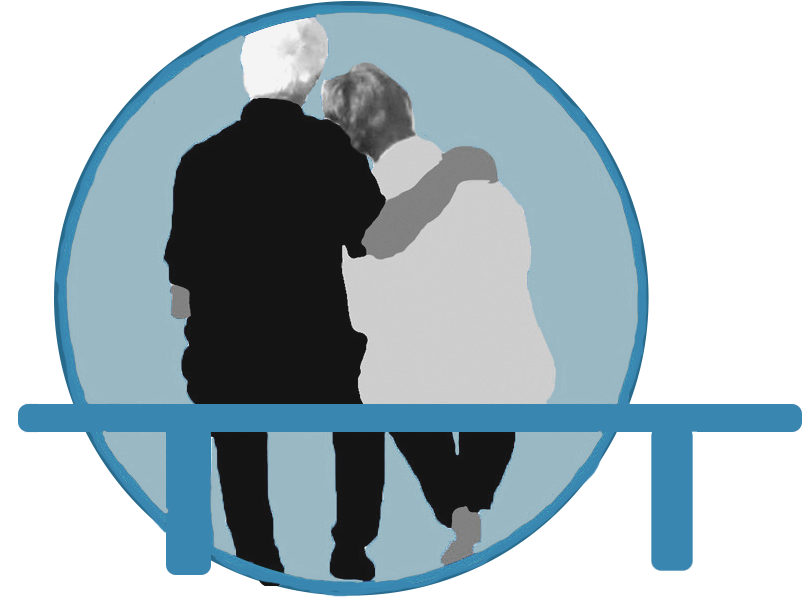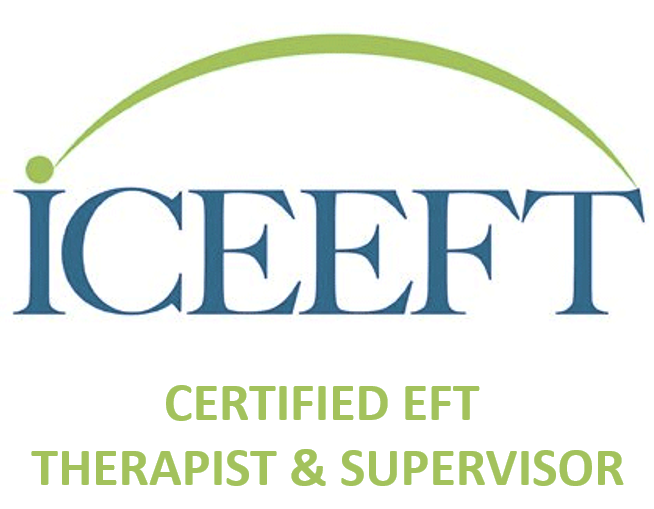Robert Ogner, Certified EFT Supervisor
I am a Licensed Clinical Social Worker, M.S.W., University of Denver 1981.
I’ve specialized in working with couples since the beginning of my practice life.
From 1985-1988 I served as both Clinical & Executive Director of Yolo Family Service Agency. I won a grant to build a consultation room connected by a one-way mirror to a room for therapists to watch, learn, and after sessions discuss our work with couples and families. This experience not only showed me the enormous learning value of therapists studying together their therapeutic efforts, but also, the profound necessity of safety for learning therapists.
From there, once full time in private practice in 1988, I was eager to work in co-therapist pairs to continue to benefit from learning from colleagues and to have my work critiqued by my co-therapist colleagues. I worked with several of my most valued colleagues in co-therapist pairs from 1988-2001, usually working with a co-therapist 3-5 sessions per week for all those years. My colleagues and myself created a couple therapy consultation group. The members of our group benefited from the care and safety that emerged from getting used to having our strengths and our limitations witnessed, learning from each other, and from the fertilization of one another’s styles, strengths, and viewpoints. I have, due to these formative experiences, developed the strongest conviction that therapist learning must not take place in isolation, and that each of us need a community of therapists that value us in our work, particularly in our unformed, formative, and imperfect places.
For me, finding the EFT community was a godsend after I moved my practice to Southern California in 2001. The loss of shared endeavors and with close collegial friends in Davis was hard. So it has been amazing to me to find an abundance of mutual warmth, support, and collaboration in my colleague therapists in the EFT community. I thought I worked similarly to the EFT model from reading Sue since 1985. I certainly valued everything she described in articles and in the EFT text. But it wasn’t until I began learning EFT in 2010 that I realized I had no idea of the strength of the model and how far off I was from doing anything close to EFT. I’ve been an eager learner since then, and have continued to feel my work evolve. It’s quite exciting to be re-shaping my work after being in practice so long. I find these days are full of integration of the model and re-integration of things I have learned and practiced throughout.
I’m happy to share more of my resume and my experience if you would like to learn more.
An excerpt from my “Philosophy of Supervision” submitted in my packet for Certification as EFT Supervisor:
“Ogner: Philosophy of Supervision—An ideal to which I fall short and am striving.
Equipping The EFT Therapist
With what do I hope my supervisees will become equipped? Relational capacities of genuine in-the-moment presence, warmth, empathy, transparency, attunement, responsiveness and resilient engagement; ability to attend to two people at once and to the subtle processes of emotional interaction between them, to have an internalized felt-sense and conceptual understanding of attachment distress and struggles; a palpable sense of purpose with comfortable flexibility, confidence and humility; and integration & mastery of the EFT Map, its steps, stages, interventions and skills. (The sense of purpose and confidence comes with the integration of EFT.)
Emotionally Focused Couple Therapy has been a revelation for me, allowing my work with couples to have profound direction and focus toward healing, providing me with expansive and specific ways to forever improve my work. It is a home base and safe haven for me in my growing as a couple therapist. I hope my supervisees will develop that kind of relationship to the EFT model because learning EFT does call on the couple therapist to continue to develop the capacities mentioned above. However learning the EFT model itself does not guarantee the development of those capacities.
The Supervisory Relationship Is The Foundation
The strength of the relationship between myself and my supervisee is the foundation for meaningful supervision. I hold that the maintenance of this relationship is my absolute responsibility. I need to be alive to the present moment to monitor the important aspects of the relationship.
There is no other profession where a person’s sense of self is so central to how the worker feels about the value brought by one’s efforts. Since we are, forever, works in progress, fallible and flawed and regularly without generosity toward our limitations, the exposure of our work and our capacities is always an opportunity for humiliation or for self-embracing humility. The safety I make for my supervisee, to expose what is difficult, not yet formed, or still formative, in understanding, skill, and relational capacity, is central to supervision being a positive adventure or something to dread.
Creating real safety is an intricate endeavor: I intend to be, as far as my self-awareness permits, real in each moment of relating with my supervisee. I hold an active recognition that my supervisee and I are co- creating our experience of supervision. I strive to not hide and affirmatively reveal my specific limitations as therapist, supervisor and partner in this relationship. I validate and support my supervisee in his or her recognition of my limitations and failures as his or her supervisor. I affirm and work to see, a true valuing of my supervisee’s strengths and efforts. I convey an absence of judgement as they, like me, venture imperfectly to learn. I feel and show kindness, empathy and identification with them in their limitations and strivings. I celebrate with them efforts at new learning. I convey my conviction that it is through our recognition of our limitations that we grow and learn and that we have the good luck of being in a profession where, if we stay open, there will be no end to this. If I work to make this kind of safety, our supervisory relationship can be a source for my supervisee to experiment and explore and derive the satisfaction of striving for all that is asked of us, without the need for perfection.
Present-Centered Aliveness & A Vital Center Where The Learning Action Happens
EFT therapist learning through supervision is profound to the degree that it has (1) the vitality of being centered in present-experiencing while (2) the supervisee is in an active mode of attentive, seeking-searching and pursuit to accomplish a goal, to learn a new skill, to gain understanding, to find a new relational capacity, and/or to be engaged in and find ways through blocks. This kind of vitality in supervision is necessary to help supervisees internalize the model into bodily-emotional experiencing; providing a counter-balance to the cognitive load that learning EFT puts on therapists. It is my fundamental undertaking with my supervisees to help them be safely immersed in this dual state of aliveness so that learning and integration of new, refreshed or updated relational capacities, conceptual understanding of the EFT model, and skill can emerge.
There are interrelated pathways of present-experiencing that lead to the integration of EFT. These include a struggle for the specific EFT skills and interventions, reflective engagement to understand the EFT Map and attachment concepts, a therapeutic focus—that often includes involvement with relational-emotional blocks, role-play and experimentation, and parallel process. When two or more of those pathways are activated, supervisor and supervisee become immersed together in what I think of as the vital center of supervision where learning and integration happen.
In regard to my supervisee’s relational blocks, I want my engagement with my supervisee to be a threshold that leads toward integration of relational capacities, the EFT map, concepts, skills and interventions. In the best moments I help create a place in that threshold for my supervisee and myself to experience, be moved and distill. Coming through to the other side of that threshold catalyzes further active modes of seeking, opened-up reflectiveness, and a more free level of play and experimentation. These are Ah-Hah moments for supervisor and supervisee and are experienced for both as sought after instances of integration.”

